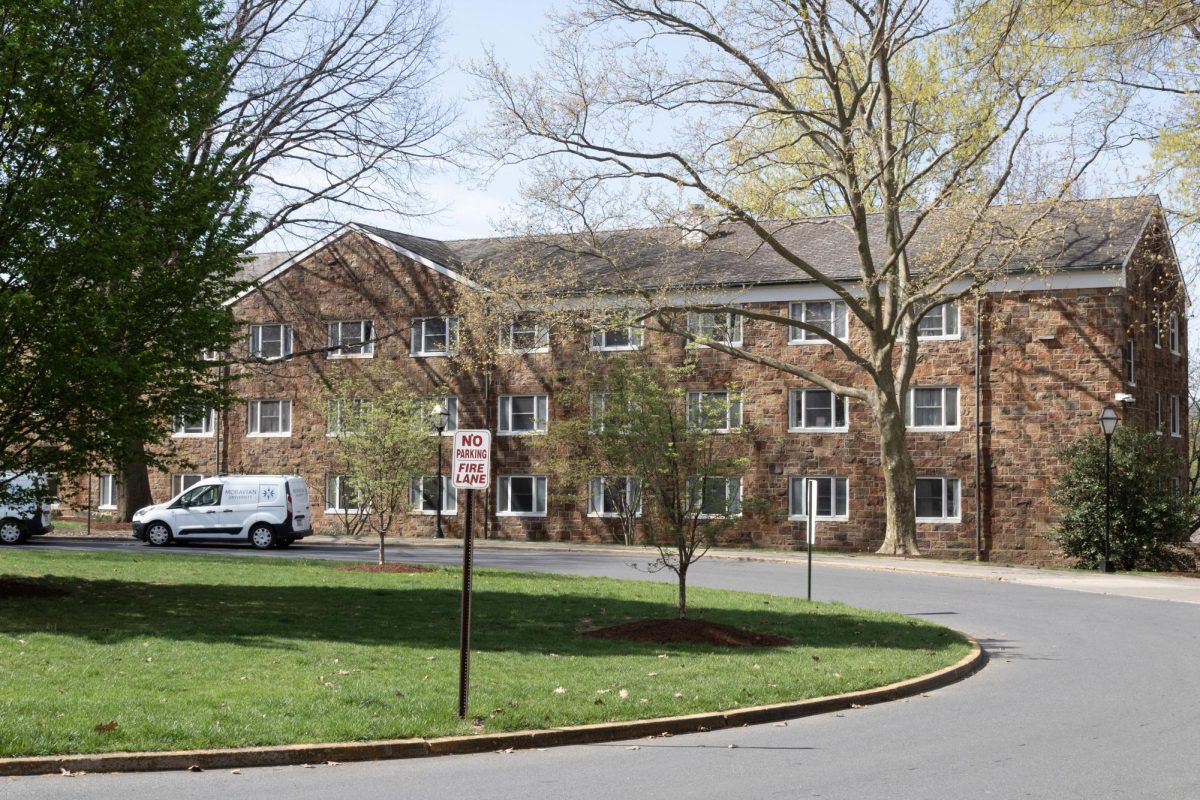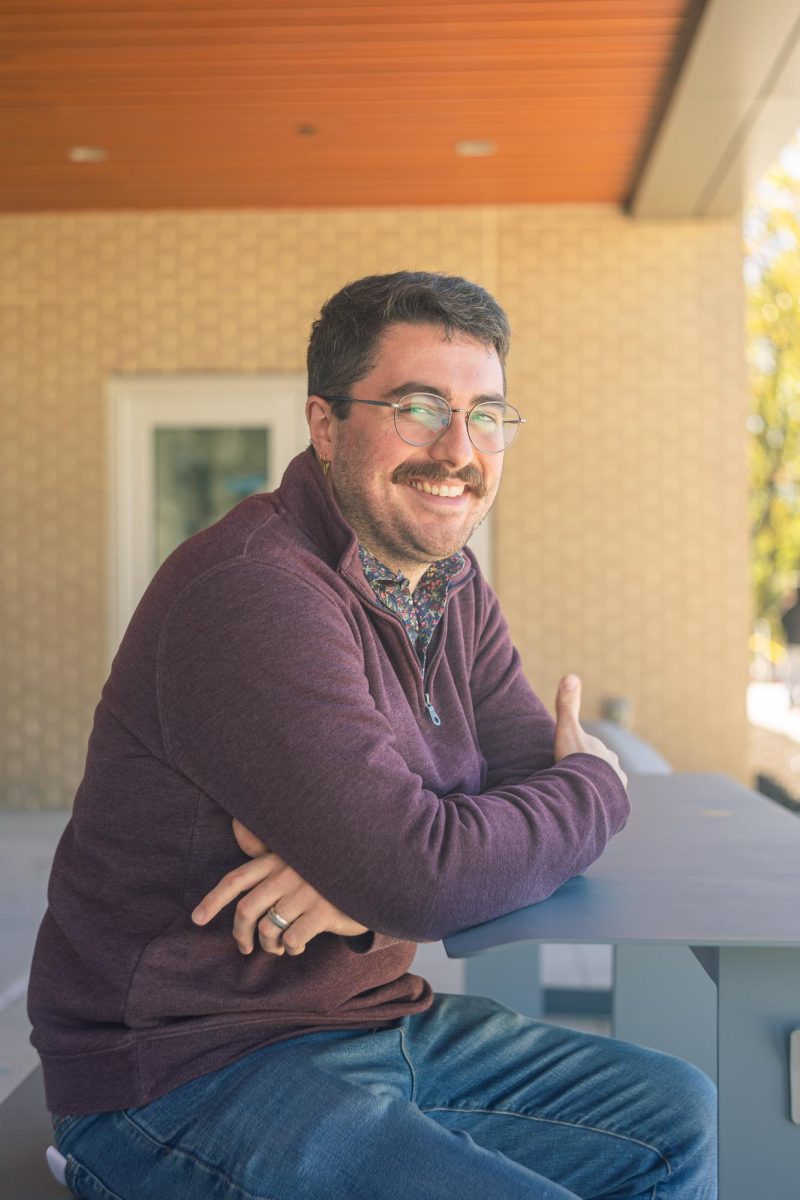Following Moravian University’s annual housing selection process in early April, many students have raised concerns about increasing competitiveness due to growing class sizes. However, the Office of Housing and Residence Life maintains that all students who want to live on campus will be accommodated.
The 2024-2025 academic year welcomed the largest freshman class in Moravian’s history, and the university recently announced it has a record-breaking applicant pool for the third year in a row, with 4,500 prospective students.
These rising numbers have sparked concern among current students, particularly around housing availability. With more incoming students than ever, many students are questioning the university’s capacity to accommodate all resident students.
“While I understand that housing is always going to be a stressful process for students, it has become a much bigger issue over the years,” said Jadyn Ulmer ‘27. “Larger rising classes are always a great addition to any university, but I think it’s also very important to take into account the housing abilities of the university regarding the current students.”
“You shouldn’t need a strategy like you’re playing chess just to have a roof over your head,” said Caitlin McCormick ‘27. “It’s not about who deserves it — it’s about who gets lucky.”
Moravian uses a point-based housing system where students are assigned points based on each completed full-time semester. Students are also assigned a random lottery number (with each class year having their own lottery numbers), which determines the order in which students/groups with the same point total select housing.
Alternate systems – such as a first-come, first-served system, full random lotteries, and GPA-based systems – have been considered in the past.
However, the Director of Housing and Residence Life, Megan Ferguson, argued that each of these comes with potentially unfair drawbacks for certain students.
The point-based system was designed to reward seniority while still being fair for groups who have the same amount of points. Ferguson emphasized that alternative systems would create greater inequities.
“There is no system that will ever be perfect,” Ferguson said. “What’s important is making sure that we continue to communicate with students and help them feel supported throughout the process.”
In response to student concerns, Ferguson said that Moravian’s residence hall capacity is not being exceeded. Moravian has a housing capacity of 1,220 students. Currently, the occupancy rate is at 88%.
Additionally, current occupancy is lower than many pre-COVID semesters, with some seeing rates of up to 98%. According to Ferguson, Moravian has not exceeded that 98% threshold this academic year.
However, housing selection this year was more competitive than in recent years. In particular, student organizational housing requests saw a substantial uptick. With 21 groups who applied, many spaces were assigned early in the selection process, especially in the HILL.
The increased student participation in this year’s housing process led to more competition for more popular areas, such as the Hillsides.
Amid heightened demand, rumors have circulated across campus suggesting that Housing may convert double rooms into triples or quads. Some students are speculating that with the rising number of accepted students, single rooms will become obsolete.
“We’ve heard this rumor, too,” Ferguson stated. “While we have used expanded occupancy options in the past, there are no plans to convert singles into doubles or doubles into triples or quads for the upcoming academic year.”
Much of the student speculation began on the anonymous social media platform YikYak, which has played a significant role in spreading misinformation.
“While YikYak can be a place for students to connect and vent, it’s not a reliable source of official information,” said Ferguson.
A significant number of students are on a waitlist to receive housing assignments. This year, 94 students did not get housing assignments during general selection, up slightly from 88 students last year. Ferguson reassures that Housing is confident that all students will receive room assignments, as all 88 students last year received them over the summer.
“To make the process fair, we continue to use the same point system and lottery numbers to create an equitable order of selection for the waitlist,” Ferguson said. “As spaces open up over the coming weeks and throughout the summer … we go down the list and match students to available spaces that best align with their preferences.”
Ferguson urged waitlisted students to regularly check their emails for housing status updates. When a space becomes available that matches a student’s preference, an offer will be emailed with a limited amount of time to accept or decline the offer.
For students who have yet to receive their housing assignment, most assignments will be released by June 1, and all assignments will be finalized by Aug. 1.
“With an increase in class size, our team has been proactive — reviewing space usage, reconfiguring existing housing, and exploring creative options to ensure every student who needs housing has a place to call home,” said Ferguson.
The Office of Housing and Residence Life wants all students to understand that the department hears their concerns and is working diligently to accommodate every resident student. No student will be left without housing in the following academic year, or any year moving forward, according to Ferguson.
“If you’re feeling unsure, reach out — ask questions, check in, use the waitlist, if needed,” Ferguson said. “We’re here to support you, and we truly want to make this process as smooth and stress-free as possible. You’re not alone in this.”
For any questions or concerns, students can reach out to the Office of Housing and Residence Life via email: [email protected].
“I want students to know that we hear you, and we understand your concerns,” said Ferguson. “It’s completely natural to feel uncertain when there are changes and unknowns — especially around something as personal and important as where you’ll be living next year.”














